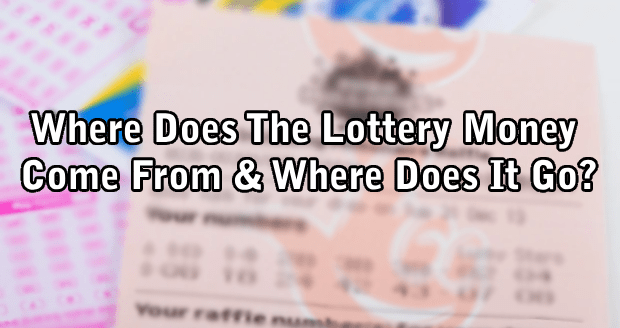
Where Does The Lottery Money Come From & Where Does It Go?

Every year, millions of people participate in the National Lottery for the chance to win. But have you ever stopped to wonder where does the lottery money come from? And where does it go when no one wins it?
This King Casino blog post explores exactly that, where the money comes from and where it goes when no one wins.
Where Does The Lottery Money Come From?
The lottery makes most of its money from the ticket sales. There are so many people buying tickets to play the lottery because of the chance of winning big. A portion of the ticket sales goes to the lottery pool, and the other goes to the causes the National Lottery supports.
In addition to the big lottery games, the National Lottery also has instant-win games where players can purchase tickets to play games with instant rewards. These also contribute to the fund.
The lottery does not have external funding from other sources other than ticket sales. The Euromillions ticket costs about £2.50, and over 45 million people play it every week. With that sheer number of people, it is easy for the lottery prizes to reach the amounts they do.
In addition, if the lottery is not won, it can roll over to the next ticket sales, which increases the prizes even further.
Does The National Lottery Make a Profit?
Yes, the National Lottery does make a profit. The lottery retains about 1% of the funds it makes as a profit. Up to 53% of the profits go to good causes, which are various charities the lottery funds, 12% is taxed, the retailers keep 4% as their profit, and Camelot Group retains 5%.
The Camelot Group is the license holder for the National Lottery, so they also get to retain some profit from it. While 1% may seem like a small amount of money, it can quickly add up, considering the revenue from ticket prizes can reach millions every week.
Where Does The Lottery Money Go?
A large portion of the lottery revenue and sales goes to good causes.
The lottery splits large portions of its revenue into different charitable causes. Naturally, if there are winners, they will receive what is due to them too.
Some of the money is paid to the government as part of the tax duty. However, the majority of the money goes to the lottery winners and good causes. For the lottery year ending on 31 March 2023, the lottery has generated £8,190.3 million and spent the following:
- £1,877.3 million = National Lottery good causes projects
- £4,694.0 million = Prizes
- £982.8 million = Government lottery duty
- £254.7 million = Retailers commission
Play Slots & Online Casino Games
Does The Government Get Money From The National Lottery?
Yes, the government receives money from the National Lottery. As mentioned above, the government receives about 40% of the revenue from the lottery.
In addition, some of the charitable causes the lottery generates funds for are the government’s responsibility.
Therefore, it divides the 40% among these charities and foundations. How much money goes to which foundation or cause is handled by the National Lottery Distribution Fund and the Department for Digital, Culture, Media, and Sport (DCMS).
These ensure that funds are distributed in their rightfully allocated places. These funds help benefit, develop, and maintain the UK’s important social sectors and services.
All in all, the money the government receives from the lottery is not pocketed by the government employees but instead maintains the livelihood and growth of UK communities.
How Is The Lottery Paid Out In The UK?
In the UK, how the lottery is paid out depends on the type of lottery you play. It also depends on how you played the games and how much the prize is.
For example, if you play the Euro millions lottery game, it can be paid out in a lump sum through the winner’s bank account. The winners also have the option to receive their winnings in annuity payments.
Another prime example of an annuity payment lottery is the Set For Life lottery game, where the top prize is £10,000 a month for 30 years.
Summary
In summary, the lottery makes all of its money from ticket sales. It sends most of the money to charities and contributes to building the UK communities, sports, arts, and heritage.
And, of course, if there are any winners, they receive their share as a lump sum through their bank accounts or in monthly instalments for a set period.






























































